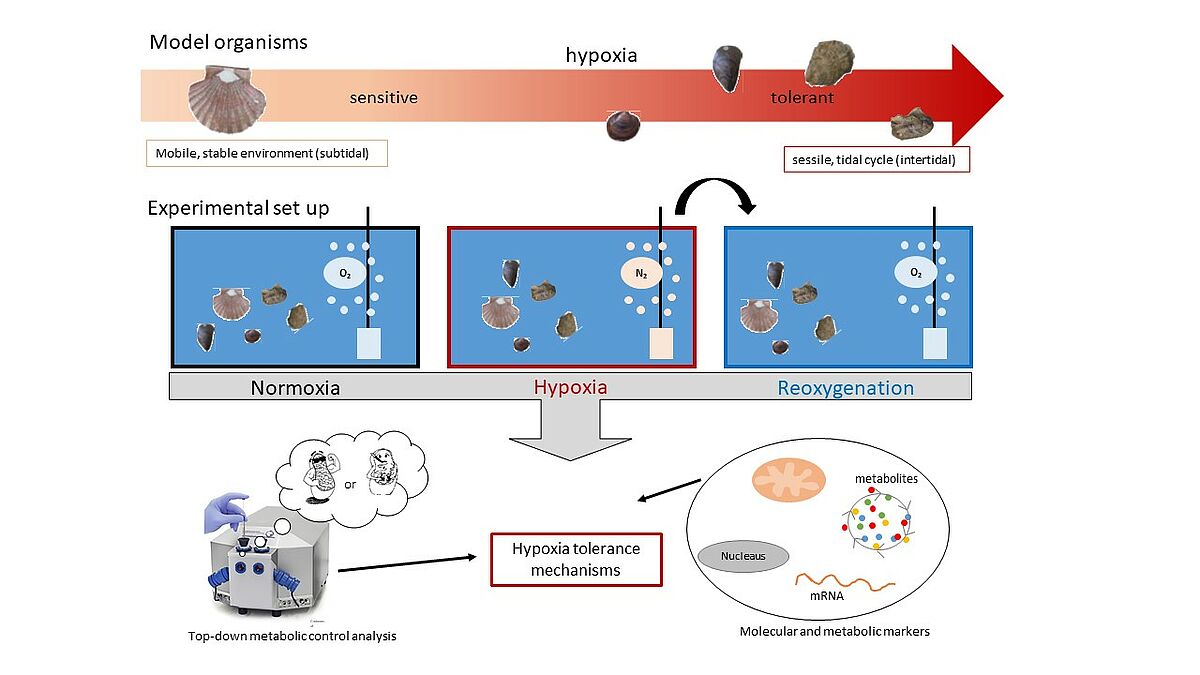MitoBOX: "The mitochonrial basis of hypoxia tolerance in marine mollusks"
Supervisor: Prof. Dr. Inna Sokolova (UHRO), Dr. Christian Bock (AWI)
Projektförderung: Deutsche Forschungsgemeinschaft (DFG)
Laufzeit: 01.04.2019 - 31.03.2022
Oxygen is essential for many organisms as it is key to many metabolic processes and vital for mitochondrial energy production. Marine environments are subject to hypoxic events, ranging from daily and tidal circles to seasonal events Low motility of benthic organisms makes them prone to oxygen deficiency and thus reliant on physiological and biochemical adaptations to survive hypoxic events. Especially, coastal environments commonly experience strong oxygen fluctuations. Resulting hypoxia/reoxygenation (H/R) stress can negatively affect mitochondrial functions, since oxygen deficiency impairs energy generation, where as a surplus of oxygen causes mitochondrial damage by oxidative stress mechanisms. Marine intertidal bivalves are adapted to fluctuating oxygen conditions, yet the underlying molecular mechanisms that sustain mitochondrial integrity and function during oxygen fluctuations are not yet well understood.
Therefore, short-term hypoxia and subsequent reoxygenation incubations on five marine bivalve species (Ostrea edulis, Crassostrea gigas, Mytilus edulis, Arctica islandica, Pecten maximus) covering a broad range of hypoxia tolerance are used to identify possible adaptive traits. We use the top-down metabolic control analysis to assess effects of hypoxia/reoxygenation stress on the capacity of mitochondrial subsystems and their control over mitochondrial respiration, ATP synthesis and ROS production. Additional mRNA expression, immunoassays and activity of key mitochondrial enzymes are analysed to determine molecular mitochondrial quality control during H/R stress. For a better understanding of the interplay of whole organisms’ resilience and mitochondrial functions, additional in vivo MRI (magnetic resonance imaging) and in vitro NMR spectroscopy are conducted. The combination of mitochondrial and molecular insights as well as in vitro and in vivo studies are expected to uncover important mechanisms of mitochondrial and whole organisms’ resilience during oxygen fluctuations

